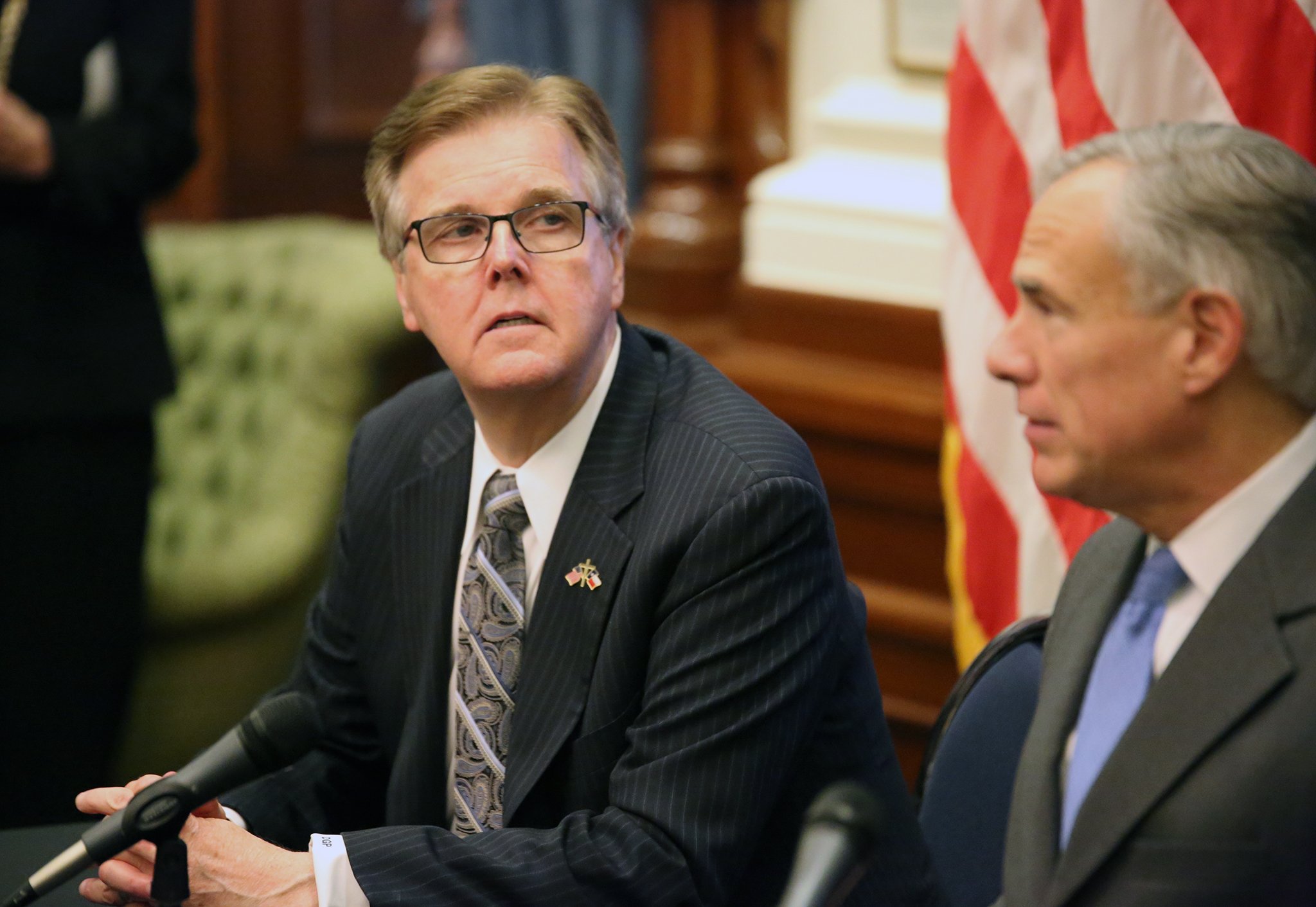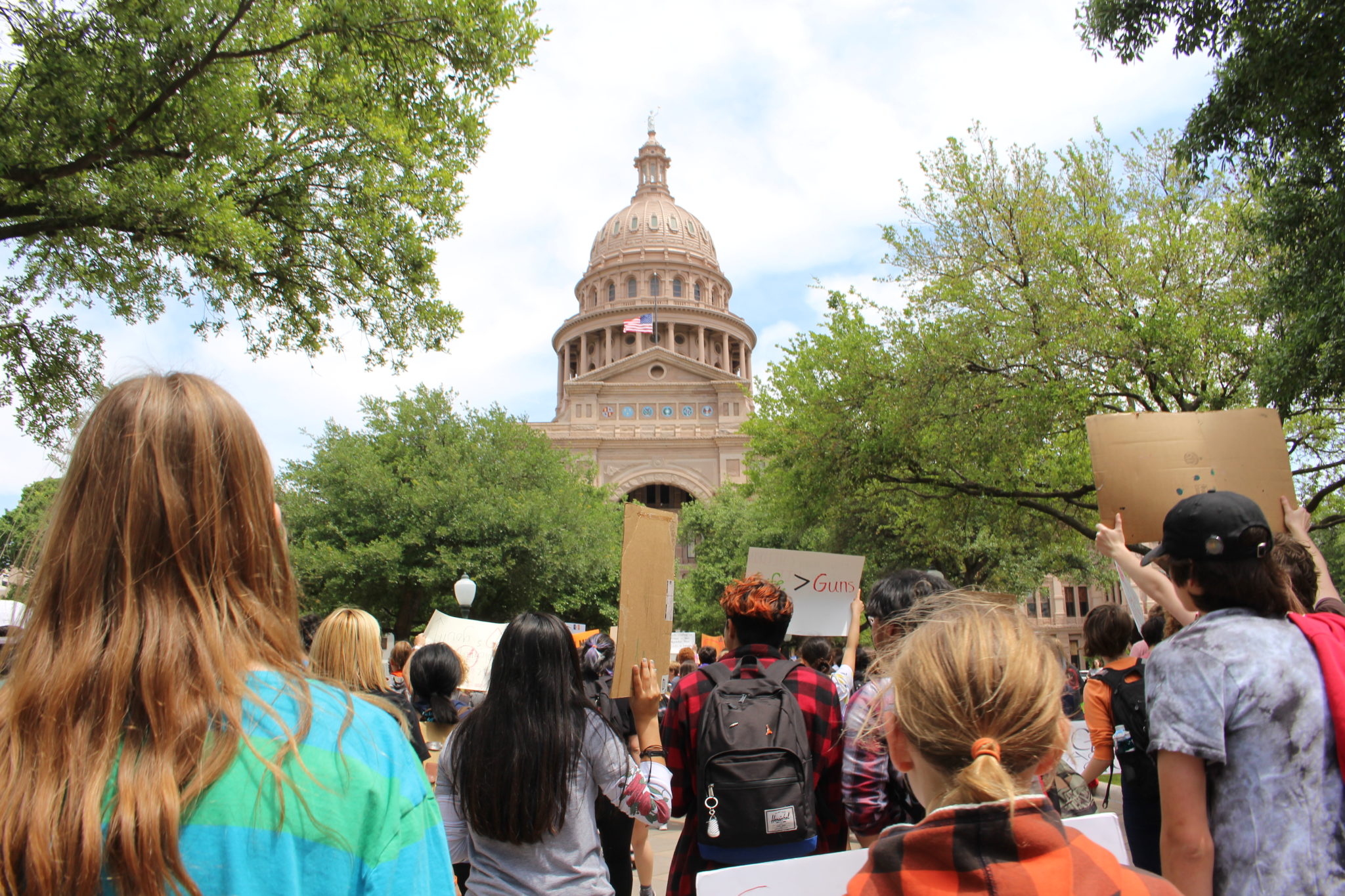Days after a man drove through Midland and Odessa, shooting his AR-15-style rifle out his window at bystanders and killing seven people, Lieutenant Governor Dan Patrick issued what was seen as a potentially monumental breakthrough in the state’s gridlocked politics around guns: The staunch conservative came out in support of expanding mandatory background checks in private sales of guns between strangers, a loophole that the shooter exploited to get his rifle after failing a federal background check years before.
“Someone in the Republican Party has to take the lead on this,” Patrick said. As the conservative leader of the state Senate, he was “willing to take an arrow.”

The mass shooting in the Permian Basin came just four weeks after a white supremacist drove from suburban Dallas to an El Paso Walmart and killed 22 people. It came less than 18 months after a shooting at Santa Fe High School killed 10 people, which itself was only seven months after a shooter at a church in Sutherland Springs killed 26 people.
Patrick said his suggestion to expand background checks for private sales between strangers—which he says account for as many as 15 percent of firearm sales in the country—could help the state crack down on the small segment of irresponsible gun owners who “don’t care how the gun is being used” by the buyer.
While it was a bare-minimum effort for gun control, the suggestion was a stark departure from Patrick’s allies in the NRA and the conservative movement—possibly a sign that the political ground on guns in Texas has started to soften.
Perhaps Patrick’s proposal was the result of a genuine change of heart, but he couched it in terms of shrewd political calculation. As he saw it, if Republicans didn’t do something to quell the public’s growing outrage, Democrats’ response whenever they next take power—in Texas or nationally—will be far more severe. “When you’re not willing to yield on anything that’s common sense, you risk losing everything,” he said. Indeed, Democrats made substantial electoral gains in the suburbs in 2018, which many attributed to the GOP’s immovable intransigence on issues like guns.
Patrick has not been one to traffic in preemptive concessions, especially when it comes to guns. But he is also a savvy political operator who knows how to read a poll. Public support in Texas for stricter gun laws has been increasing at a greater rate than opposition in recent years, according to the Texas Politics Project. One poll shows that 78 percent of Texans support universal background checks, including nearly 70 percent of gun owners, almost 80 percent of “mainline Republicans,” and 53 percent of “tea party Republicans.”
But so far, Patrick’s defection has done little to move those in his own ranks. He’s quickly become a conservative non grata, exposing why defections like his—no matter how limited—are so rare in Texas.
The NRA said that Patrick had exposed himself as “unprincipled” and “ill-informed” on the Second Amendment. Ted Cruz called it “a serious mistake.” Matt Rinaldi, a former tea-party state legislator, went so far as to label Patrick a greater threat to Texas gun owners than Beto O’Rourke, who, after the racist massacre in his hometown, has embraced a mandatory federal buyback program for assault-style rifles in his presidential campaign.
Governor Greg Abbott reportedly also signaled an openness to the idea during closed-door discussions but ultimately decided to steer clear of the Patrick pileup. In a report listing legislative proposals to reduce gun violence, he said that the government should merely explore ways to make it easier to do voluntary background checks.
Maybe Patrick thinks he can wield the power of his bully pulpit, and his influence among Republican state senators, to force the issue. But he’ll be going up against the very same animating forces that he has emboldened during his career in Austin.

For nearly a quarter century, Texas lawmakers have steadily relaxed state gun laws, beginning with the passage of concealed-carry for licensed handgun owners in 1995. More recently, Patrick has led a band of right-wing conservatives to expand the bounds of gun rights in the state, enacting open carry, campus carry, and, most recently, making it easier to carry guns in churches and schools.
During that time, advocates of Second Amendment absolutism have embedded themselves in every nook and cranny of the Texas Republican Party firmament and built a political enforcement machine that prohibits retrogression.
But the political scales have begun to shift ever so slightly as gun-control activists like Moms Demand Action build a presence in Texas and Democrats become more surefooted on what was once the third rail of state politics. The rise of a legitimate counterweight, though, has only driven hardline gun-rights activists to burrow down even deeper and to become even more hypervigilant about Republican rigidity.
C.J. Grisham, the founder of Open Carry Texas and a lead enforcer of that stridency, believes that Patrick is playing a dangerous political game of placation. “I think he wants to be seen as somebody who did something, not somebody who solved anything,” he said. “There should be no more middle ground [on guns]. Any time we talk about middle ground, we lose.” Texas is turning purple, he said, because Republican leaders have abandoned their base by failing to push for constitutional carry, in which any Texan can carry a gun without a permit. Patrick’s push for expanded background checks would only accelerate that trend in 2020. “It’s not that we’re going to start voting for Democrats; it’s that we’re going to stop voting,” Grisham said.
That may seem hyperbolic, but you can bet no Republican is eager to find out.
Read more from the Observer:
-
Death in Solitary: Russell Johnson’s sister warned officials that nearly three years in solitary confinement had broken him. His suicide in isolation two months later points to compounded crises inside Texas prisons.
-
The Supreme Court Taking Up Louisiana’s Abortion Case ‘Flies in the Face of Precedent’: Amy Hagstrom Miller, CEO of Whole Woman’s Health, won a major victory against a Texas anti-abortion law at the U.S. Supreme Court three years ago. In an interview, she talks about the recent case coming out of Louisiana and what it means for abortion rights in the U.S.
-
As Pete Sessions Tries to Revive his Political Career, He May Get Sucked into Ukraine: The once-powerful Republican congressman is trying to claw his way back to Washington at a time when his allies in Trumpworld are under fire.







